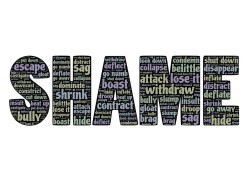Understanding the Information Cocoon and Its Impact on Society
- 房百科
- 2025-08-18
- 29
In today's digital age, the term "information cocoon" has become increasingly relevant as it encapsulates a phenomenon that affects how we consume and interact with information. This article aims to delve into the concept of the information cocoon, its implications, and the broader effects it has on society.
The information cocoon refers to the tendency of individuals to surround themselves with information that confirms their pre-existing beliefs, values, and opinions. This phenomenon is often facilitated by the personalized algorithms of social media platforms and search engines, which tailor content to align with a user's interests and preferences. The term "information cocoon" is derived from the metaphor of a cocoon, which is a protective covering spun by a caterpillar before it transforms into a butterfly. In the context of information, this cocoon metaphorically shields individuals from diverse perspectives, potentially leading to a narrow and biased worldview.
The concept of the information cocoon can be understood through several key aspects:
1、Personalization and Algorithms: Modern technology, particularly social media platforms like Facebook, Twitter, and YouTube, use complex algorithms to curate content that is likely to engage users. These algorithms analyze user behavior, such as likes, shares, and comments, to predict and serve content that aligns with their interests. As a result, users are often exposed to a limited range of perspectives that reinforce their existing beliefs, creating an echo chamber effect.
2、Confirmation Bias: Confirmation bias is the tendency to search for, interpret, favor, and recall information in a way that confirms one's preexisting beliefs or hypotheses. In the context of the information cocoon, this bias leads individuals to seek out and engage with content that supports their views, while ignoring or dismissing information that challenges them.
3、Selective Exposure: This is the act of consciously or unconsciously choosing to engage with media that aligns with one's beliefs and values. In the digital age, this selective exposure is amplified by the ease with which individuals can curate their own information environments, leading to a self-reinforcing cycle of confirmation and reinforcement.
4、Echo Chambers: An echo chamber is a situation in which beliefs are amplified or reinforced by communication and repetition inside a defined system. In the context of the information cocoon, echo chambers can form within social media groups, online forums, or even among friends and family who share similar views. This reinforcement can lead to a distorted perception of reality and a lack of exposure to alternative viewpoints.
The information cocoon has several significant implications for individuals and society:
1、Polarization: The information cocoon can contribute to the polarization of opinions and beliefs, as individuals become more entrenched in their views and less willing to consider alternative perspectives. This polarization can lead to increased social and political divisions, making it more difficult to find common ground and engage in productive dialogue.
2、Misinformation and Fake News: Within the confines of an information cocoon, individuals may be more susceptible to misinformation and fake news, as they are less likely to encounter fact-checking or contradictory information. This can lead to the spread of false beliefs and the erosion of trust in credible sources of information.
3、Reduced Critical Thinking: Constant exposure to information that confirms one's beliefs can lead to a decline in critical thinking skills, as individuals may become less inclined to question or scrutinize the information they receive. This can result in a reliance on intuition and emotion over reason and evidence.
4、Social Isolation: The information cocoon can also contribute to social isolation, as individuals may find it increasingly difficult to connect with others who hold different views. This can lead to a lack of empathy and understanding, further exacerbating social divisions.
To counteract the effects of the information cocoon, several strategies can be employed:
1、Actively Seek Diverse Perspectives: Individuals can make a conscious effort to seek out and engage with a variety of sources of information, including those that challenge their beliefs. This can involve following news outlets with different political leanings, participating in discussions with people of diverse backgrounds, and exploring topics outside of one's comfort zone.
2、Develop Media Literacy Skills: Enhancing media literacy skills can help individuals critically evaluate the information they encounter, discerning between credible sources and those that may be biased or unreliable. This includes understanding how algorithms work and their potential impact on the information we see.
3、Encourage Open Dialogue: Fostering an environment that encourages open and respectful dialogue can help break down the barriers of the information cocoon. This involves listening to others' perspectives, asking questions, and being willing to engage in constructive debate.
4、Platform Responsibility: Social media platforms and search engines can play a role in mitigating the effects of the information cocoon by adjusting their algorithms to promote a more diverse range of content. This could involve introducing mechanisms that expose users to a broader spectrum of viewpoints and reducing the amplification of polarizing content.
In conclusion, the information cocoon is a complex phenomenon that has significant implications for individuals and society. By understanding its mechanisms and effects, we can take steps to break free from the confines of our own information cocoons and foster a more informed, empathetic, and connected world.













